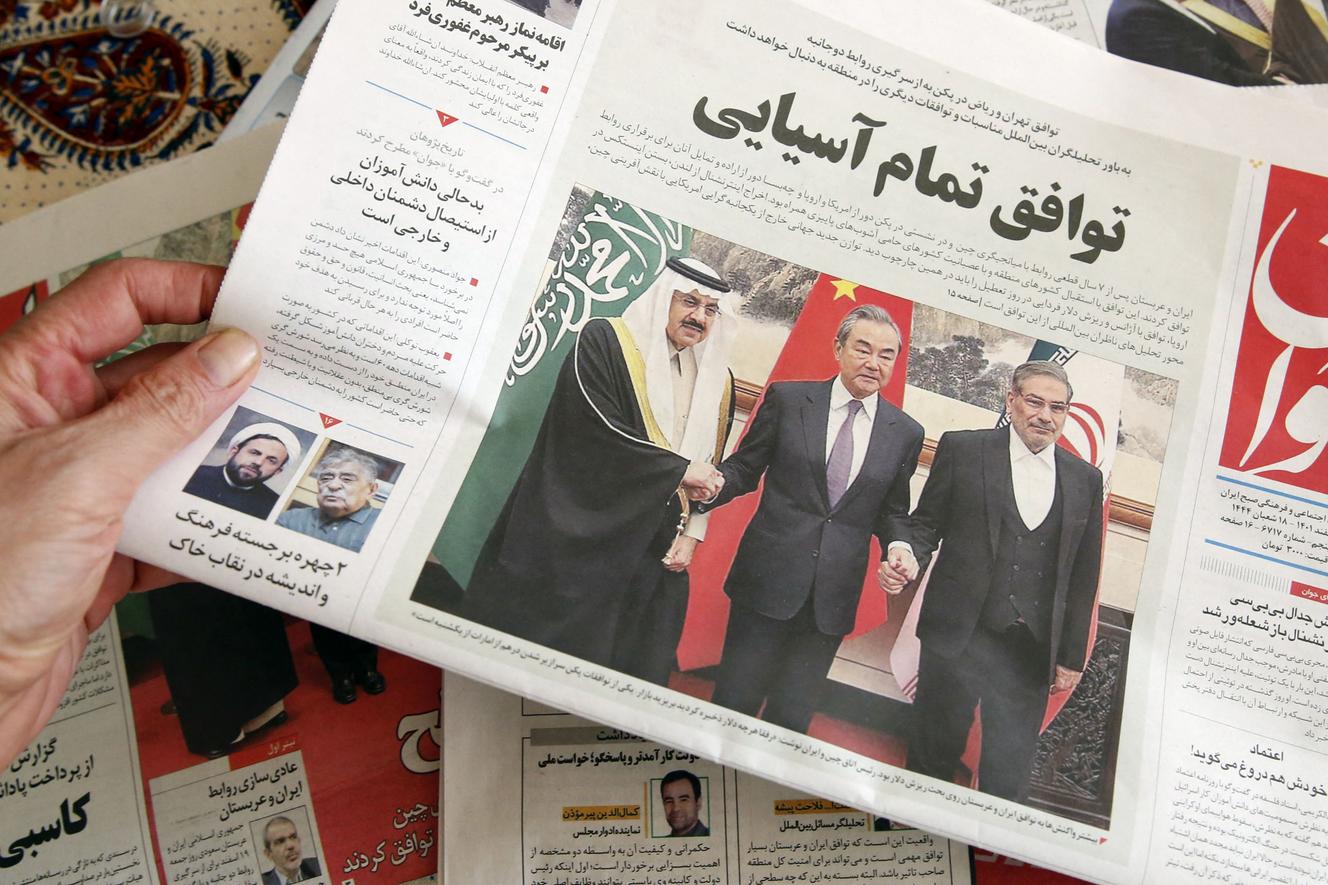VLadimir Putin has brought the United States back to Europe: the war of aggression that the Russian president is pursuing in Ukraine is strengthening the Atlantic Alliance. On the other hand, the successful mediation of China in the old conflict of the Arabo-Persian Gulf confirms the withdrawal of Washington from a Middle East which was for a long time its preserve. Such is the case with the unexpected play of the great powers at the twilight of this first quarter of a century.
It will take some getting used to. Xi Jinping’s China – who has just been dubbed for a third term at the head of the Party-State – is today risking itself on grounds that it hardly frequented. The great diplomatic adventures remained the monopoly of the Americans and the Russians. Cautious, the Chinese, more often than not, followed the line of the Kremlin, at the time of the Soviet Union and after.
But now, on Sunday March 12, the news came from Beijing: after two years of dialogue sponsored by the Middle Kingdom, Iranians and Saudis have decided to resume diplomatic relations broken off in 2016.
It’s not nothing. The Islamic Republic and the Saudi monarchy have been vying for dominance over the region for years. Their conflict is a classic battle for power between regional superpowers. It is as old as the antagonism between Persians and Arabs. Crossing the fault line that crosses the Muslim world, the conflict feeds on the rivalry between Sunnis (the majority branch of Islam) and Shiites (the minority branch).
Emancipate from the American “godfather”
The Saudi theocracy intends to exercise its “leadership” over the Sunni Arab world. Supported by the Gulf emirates but also by Israel, Riyadh is committed to curbing Iranian expansionism in Arab land. At the head of a predominantly Shiite country, the Islamic Republic of Iran wants to be the leader of the minorities of Islam. Relying on the Shiite communities of the Arab world, which it has often armed, it exercises a determining and destabilizing influence in the region.
This strategic rivalry undermines the Middle East. It maintains the atrocious Yemeni civil war; it is at the heart of Lebanon’s torments; it is one of the keys to the Syrian tragedy; finally, it weighs on the future of Iraq. No doubt it took a great mahjong player, in this case Wang Yi, the master of Chinese diplomacy, to successfully mediate between Iranians and Saudis – mediation that can open the way to regional appeasement.

But, in addition to China’s diplomatic activism, Saudi Arabia’s behavior in this matter is also typical of another trend of the time. It bears witness to this way that the middle powers have of emancipating themselves from their “godfather” – in this case the United States. In an atomized Middle East – where America is no longer the dominant player – Crown Prince Mohammed Ben Salman, known as MBS, operates a diplomatic game with multiple keys.
You have 48.12% of this article left to read. The following is for subscribers only.
